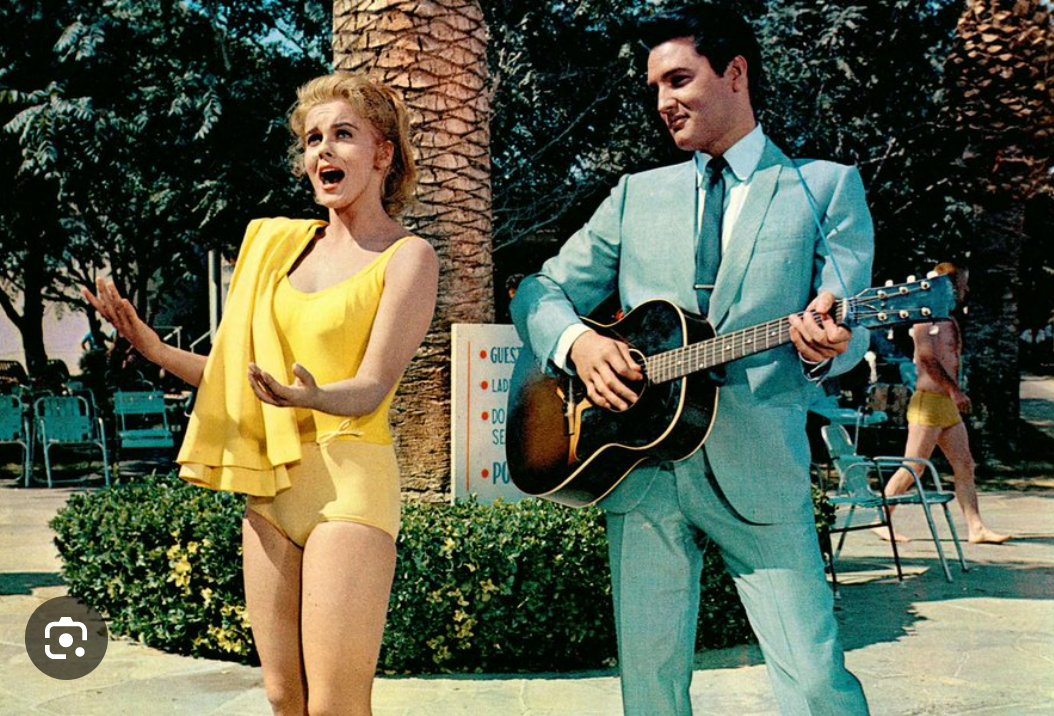
About The Song
Elvis Presley and Ann-Margret, a match made in cinematic and musical heaven. Their electrifying chemistry crackled across the silver screen in the 1964 film Viva Las Vegas, and nowhere is it more potent than in the playful duet “The Lady Loves Me”.
---> Scroll down for the VIDEO
This isn’t your typical Elvis ballad. This is a vibrant, tongue-in-cheek exchange between two characters in the throes of a flirtatious dance. Elvis, smooth and confident, embodies Rusty Martin, a race car mechanic with a swagger. Ann-Margret, radiating a feisty charm, portrays Rusty’s love interest, swimming instructor and aspiring showgirl, Rusty Martin.
The song opens with a delightful back-and-forth. “The Lady Loves Me,” they sing in unison, then a playful descent into teasing doubt. “She loves me, she loves me not…” Elvis, ever the charmer, assures himself “the lady loves me” despite her apparent indifference. This sets the stage for a comedic battle of the sexes, a playful tug-of-war where both parties are clearly smitten.
---> Scroll down for the VIDEO
“The Lady Loves Me” isn’t just vocally captivating; it’s a masterclass in musical storytelling. The swinging rhythm perfectly captures the effervescent energy of Las Vegas, a city that thrives on chance encounters and whirlwind romances. The playful horns and sassy percussion underscore the flirtatious banter, while the driving bass line keeps the energy high.
But beneath the playful exterior lies a touch of vulnerability. The lyrics, penned by Sid Tepper and Roy C. Bennett, hint at a deeper yearning. Elvis sings of a “gentleman” the lady supposedly has eyes for, dismissing him as an unappealing bore. Ann-Margret counters with a jab at a rival, comparing him to a “soggy cigarette.” These subtle digs reveal a hidden insecurity, a desire to win the other’s affection.
“The Lady Loves Me” is more than just a catchy tune; it’s a snapshot of a bygone era. It captures the innocent flirtation, the playful banter, and the undeniable magnetism of the early 1960s. With Elvis’s smooth vocals and Ann-Margret’s spirited delivery, it’s a song that lingers long after the last note fades, leaving you with a smile and a warm sense of nostalgia.